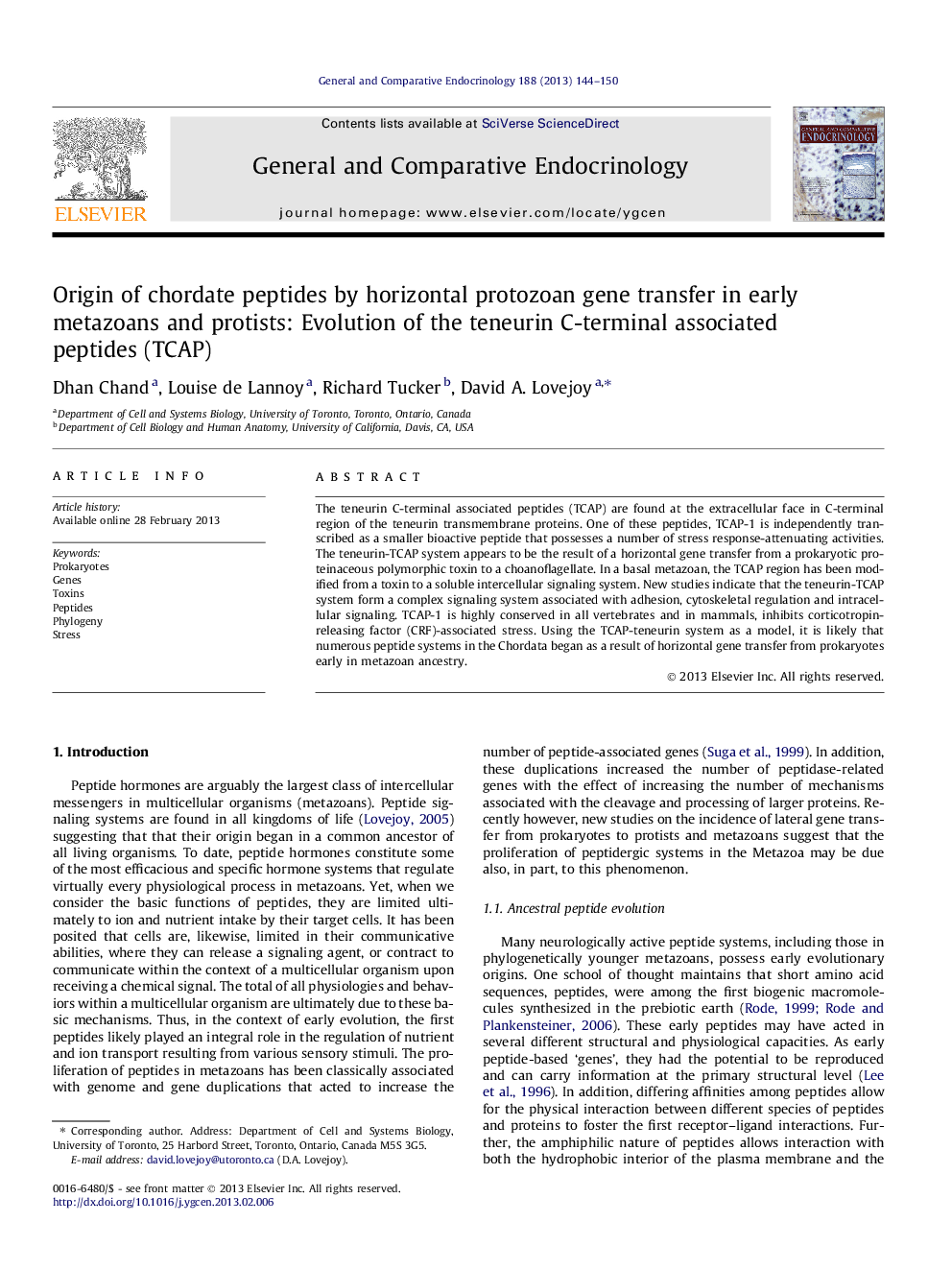| Article ID | Journal | Published Year | Pages | File Type |
|---|---|---|---|---|
| 5901349 | General and Comparative Endocrinology | 2013 | 7 Pages |
The teneurin C-terminal associated peptides (TCAP) are found at the extracellular face in C-terminal region of the teneurin transmembrane proteins. One of these peptides, TCAP-1 is independently transcribed as a smaller bioactive peptide that possesses a number of stress response-attenuating activities. The teneurin-TCAP system appears to be the result of a horizontal gene transfer from a prokaryotic proteinaceous polymorphic toxin to a choanoflagellate. In a basal metazoan, the TCAP region has been modified from a toxin to a soluble intercellular signaling system. New studies indicate that the teneurin-TCAP system form a complex signaling system associated with adhesion, cytoskeletal regulation and intracellular signaling. TCAP-1 is highly conserved in all vertebrates and in mammals, inhibits corticotropin-releasing factor (CRF)-associated stress. Using the TCAP-teneurin system as a model, it is likely that numerous peptide systems in the Chordata began as a result of horizontal gene transfer from prokaryotes early in metazoan ancestry.
⺠The teneurin C-terminal associated peptides (TCAP) are a highly conserved signaling peptide family. ⺠TCAP and the teneurin-proprotein system play a major role in neurological development, processing and regulation of stress. ⺠The TCAP-teneurin system originated in the metazoan by a horizontal gene transfer event in a choanoflagellate.
